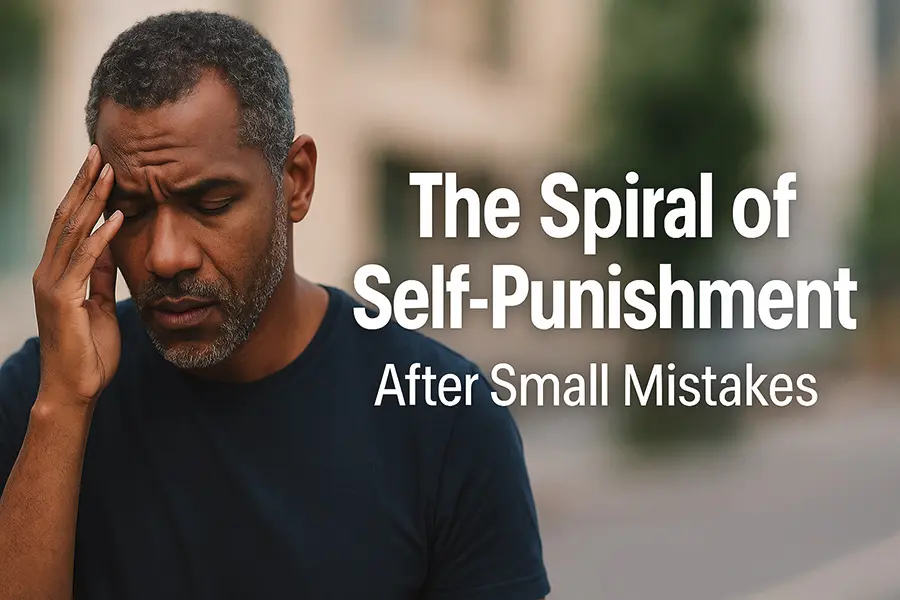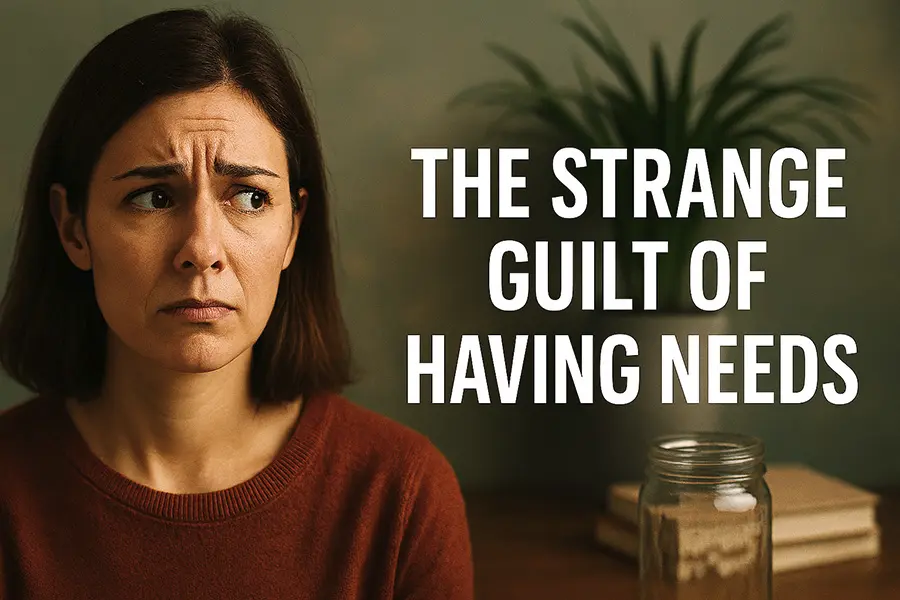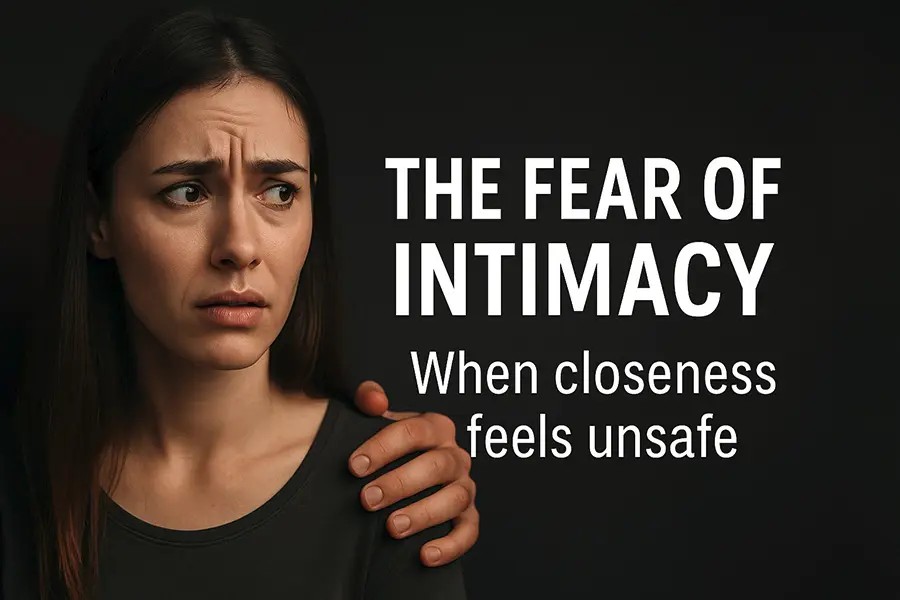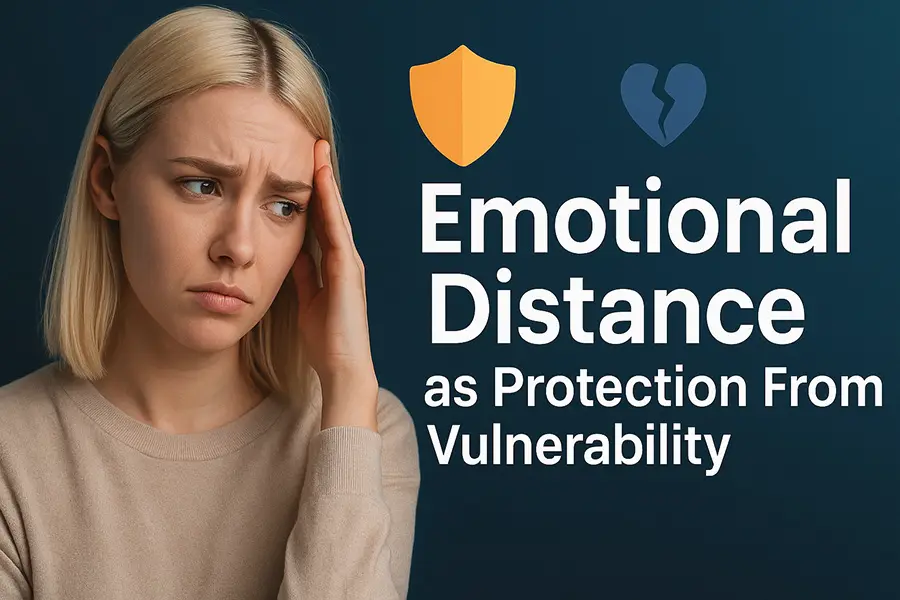Picture this: I’m sitting in a coffee shop, chatting with friends, and I accidentally blurt out something totally awkward. Its no big deal, right? But for the next three days my brain’s on a mission to replay that moment like its the worst crime ever. “Why did I say that? They probably think I’m such a weirdo. I’m never gonna live this down” 😅 Sound familiar? If you’ve ever beaten yourself up over a tiny mistake like a typo in an email or a clumsy comment you know how exhaustiing that spiral of self punishment can be. Why we self punishment after mistakes?

This isnt just about being hard on yourself; it’s a real thing that can mess with your mental health, especially if you’re part of the LGBTQ+ community, where social pressures can make those mistakes feel even heavier. In this guide, we’ll dig into why your brain does this how it keeps you stuck and practical ways to break free with kindness and confidence. Whether youre replaying a work email or a moment from a party, you’re not alone, and you can stop the spiral. Ready to give yourself a break?
“I shouldn’t have said that.” “That email was awkward.” “They must think I’m incompetent.” Even tiny slip-ups could send me into days of self-criticism. My brain treated minor mistakes like catastrophic failures. That’s the exhausting spiral of self-punishment after small mistakes.

Quick Boundaries Quiz to Check Yourself
Not sure if your boundaries are helping or hurting?
Take the quick quiz to see where you stand
Just in 3 Min
Part of the Emotional Boundaries series
Why Small Mistakes Trigger Huge Shame
- Perfectionism sets impossible self-standards
- Old shame patterns inflate minor errors
- Fear of judgment amplifies perceived consequences
- Nervous system links mistakes to safety threats
Why Small Mistakes Feel Like the End of the World 🤔
Ever wonder why a tiny slip-up like forgetting someone’s name or sending a slightly off email feels like a total catastrophe? Its not just you being dramatic; there’s some serious psychology behind it. Here’s why small mistakes can trigger such huge shame:
- Perfectionism’s Iron Grip: If you’re a perfectionist (yep, guilty here!), you might hold yourself to impossible standards. A single typo feels like proof you’re not good enough. I used to obsess over every email, thinking it had to be flawless or I’d look incompetent.
- Old Shame Patterns: Past experiences like being criticized as a kid or feeling judged for your identity can make you extra sensitive to mistakes. Your brains like, “Not again!” and blows the error out of proportion.
- Fear of Judgment: Even if no one else notices, you might worry that others are judging you. This is especially true for LGBTQ+ folks, who often face extra scrutiny or fear of rejection due to societal biases.
- Survival Brain at Work: Back in the day, being ostracized from your group could mean life or death. Your brain still sees mistakes as threats to your social standing, so it overreacts to keep you “safe.”
According to Psychology Today, shame often stems from a fear of disconnection, and for marginalized groups like the LGBTQ+ community, this fear can be amplfied by external pressures. That’s why a small mistake can feel like a massive failure it’s your brain trying to protect you, but it’s kinda overdoing it.

How Self-Punishment Maintains The Cycle
- Ruminating keeps nervous system in threat mode
- Self-criticism masquerades as “accountability”
- Emotional avoidance prevents true resolution
- Harsh inner voice increases anxiety about future mistakes
How Self-Punishment Keeps You Stuck 🔄
You might think beating yourself up is a way to “learn” from your mistakes, but it actually keeps you trapped in a vicious cycle. Here’s how:
- Rumination Overload: When you keep replaying a mistake like that time I tripped over my words in a meeting your nervous system stays in “threat mode,” making you feel like you’re still in danger. This ramps up anxiety and makes it harder to move on.
- Self-Criticism Isn’t Accountability: Harsh self-talk (“I’m such an idiot!”) doesn’t make you beter; it just makes you feel worse. Research from Harvard Business Review shows self-compassion leads to better growth than self-criticism.
- Avoiding Real Emotions: Punishing yourself can be a way to dodge the real feelings behind the mistake, like embarrassment or fear. But avoiding those emotions keeps them stuck, fueling the cycle.
- Fear of Future Mistakes: The more you punish yourself, the more anxious you get about messing up again, which makes you hypervigilant and stressed.

I remember after a clumsy comment at a friend’s party, I spent days convincing myself everyone hated me. It wasn’t until I started practicing self-compassion that I realized I was the only one still thinking about it.
Signs You May Be Stuck in Shame Loops
- Replaying small errors repeatedly
- Catastrophizing minor slip-ups
- Difficulty forgiving yourself
- Assuming others are still judging you long after event
- Over-apologizing for small things
Signs You’re Caught in a Shame Spiral 🚧

Not sure if you’re stuck in this cycle? Here are some signs to watch for:
- Replaying Mistakes on Loop: You keep going over what you did wrong, like a mental highlight reel of your worst moments.
- Catastrophizing Small Errors: You convince yourself a tiny mistake like forgetting a name will ruin your reputation or relationships.
- Struggling to Forgive Yourself: Even after others have moved on, you’re still beating yourself up.
- Assuming Others Are Judging: You’re sure everyone’s still thinking about your mistake, even if they’ve probably forgotten it.
- Over-Apologizing: You say “sorry” way too much, even for things that don’t need an apology, like bumping into someone.
If these sound familiar, don’t worry you’re not alone. I used to apologize for everything, even stuff that wasn’t my fault, until I learned to ease up on myself.
How to Break Free with Compassion 💪

Ready to stop the self-punishment spiral? Here are five practical strategies to help you treat yourself with kindness instead of criticism:
1. Normalize Your Brain’s Overreaction
Your brain’s just trying to keep you safe, even if it’s going overboard. Acknowledge it: “Hey, brain, I know you’re worried about this mistake, but it’s not a big deal.” This takes the power out of the shame. I started doing this after a typo-filled email, and it helped me chill out.
2. Practice Compassionate Self-Talk
Talk to yourself like you’d talk to a friend who messed up. Instead of “I’m so stupid,” try, “Everyon e makes mistakes it’s okay.” Or, “That was a small slip-up, and it doesn’t define me.” I used this after a bad presentation, and it felt like a weight lifted off my shoulders.
3. Try Thought Defusion
When you catch yourself ruminating, step back from the thought. Say, “I’m having the thought that I’m a failure, but it’s just a thought, not the truth.” You can also visualize your thoughts as leaves floating down a stream let them drift away. This trick helped me stop obsessing over a clumsy joke I told.
4. Build Tolerance for Imperfection
Start embracing small mistakes without freaking out. If you spill coffee, don’t berate yourself just clean it up and move on. Journal about times you handled imperfection well to build confidence. I started doing this with small errors at work, and it made me feel so much freer.
5. Anchor Your Nervous System
Mistakes can send your body into fight-or-flight mode, so use grounding techniques to calm down. Try deep breathing (inhale for 4, hold for 4, exhale for 4) or place your hand on your heart and say, “I’m safe, even after this mistake.” This helped me relax after a social blunder at a community event.

Q&A: Your Questions Answered ❓
Got questions about self-punishment? I’ve been there, so let’s tackle some common ones:
Nope! Studies, like those from Greater Good Science Center, show self-compassion leads to better growth and resilience than self-criticism. Harsh talk just keeps you stuck.
Your brain’s wired to see mistakes as threats to your social standing, especially if you’ve faced criticism or rejection before. For LGBTQ+ folks, societal pressures can make this worse. But with practice, you can teach your brain that small errors aren’t the end of the world.
Not forever. With tools like self-compassion and mindfulness, you can reduce how intense and long-lasting shame feels. It’s a skill you build over time
Pause before saying “sorry” and ask, “Is this really my fault?” If it’s a small thing, let it go. I used to apologize for everything, but practicing this helped me cut back.
Totally! Cognitive Behavioral Therapy (CBT) can help rewire self-punishing thoughts. Platforms like BetterHelp make it easy to find a therapist who gets it
Self-Punishment and the LGBTQ+ Experience 🏳️🌈
For folks in the LGBTQ+ community, self-punishment can hit extra hard. Social pressures like fear of judgment for your identity, coming out, or navigating spaces that don’t always feel safe can make small mistakes feel like massive failures. Maybe you said something “too queer” in a group setting and worried it made you stand out, or you felt you didnt “fit in” at a community event. These moments can trigger shame spirals because of the added weight of societal expectations
But here’s the thing: your identity is a strength, not a flaw. Mistakes don’t make you less worthy of love or belonging. Practicing self-compassion is especially powerful for LGBTQ+ folks it’s a way to reclaim your narrative and reject external judgments. Try writing a letter to your younger self, validating their efforts and reminding them they’re enough. I did this after a moment where I felt judged for being open about my identity, and it was like giving myself a big hug.
For more on embracing your identity, check out our article on Embracing Emotional Sensitivity.

Conclusion: You’re Allowed to Be Human 🌈
Mistakes don’t make you less self punishment after mistakes worthy they make you human. You don’t have to suffer for every little slip-up. By practicing self-compassion, grounding your nervous system, and embracing your imperfections, you can break the spiral of self-punishment and live with more freedom and joy. As Kristin Neff says, “Self-compassion is simply giving the same kindness to ourselves that we would give to others.”
So, next time you mess up, take a deep breath, give yourself a little grace, and keep moving forward. You’ve got this! 😊 What’s one way you’re gonna be kinder to yourself today? Drop it in the comments we’d love to cheer you on!
For more tips on emotional boundaries and self-compassion, explore our Self-Care Hub.

You Don’t Need to Suffer for Being Human
Growth happeens through gentle course correction not endless self-punishment. Youre allowed to make small mistakes, learn, and move forward with warmth not war toward yourself. Compassion is the strongest accountability
Other articles you might like:
Other sources you can read to complete your information
✨ Last updated on 10.08.2025
















Leave a Reply